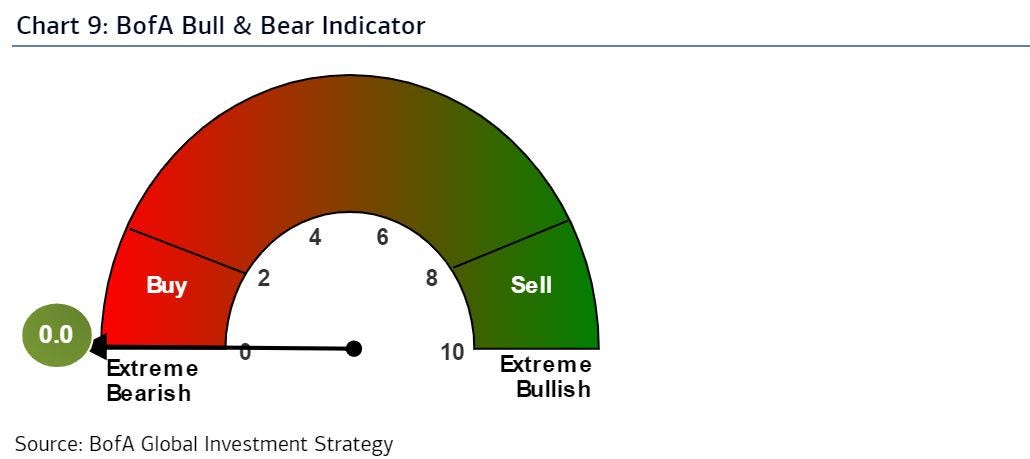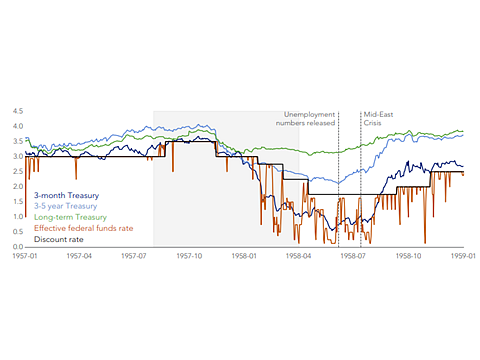Recognizing Adult ADHD: 8 Subtle Indicators You Shouldn't Ignore

Table of Contents
Persistent Procrastination and Difficulty with Time Management
Chronic procrastination isn't laziness; it's often a hallmark of ADHD. Difficulty breaking down large tasks, poor prioritization, and consistent lateness are common signs. For adults with ADHD, time management often feels like an insurmountable challenge. This isn't a lack of willpower; it's a symptom stemming from difficulties with executive function. The brain struggles to plan, organize, and execute tasks effectively.
- Regularly missing deadlines: Despite good intentions, deadlines are consistently missed.
- Feeling overwhelmed by even small tasks: Simple tasks can feel monumental and insurmountable.
- Struggling to organize daily routines and schedules: Maintaining a consistent schedule and organizing daily activities is a significant challenge.
- Procrastinating even on enjoyable activities: Even activities that are inherently pleasurable can be postponed due to difficulty initiating tasks. This is a key difference between procrastination driven by ADHD and simple laziness.
Problems with Focus and Attention
While hyperactivity is often associated with ADHD, inattentive symptoms are equally significant in adults. This can manifest as difficulty concentrating, easily getting distracted, and struggling to maintain focus on conversations or tasks. Sustained attention requires significant mental effort, leading to frustration and a sense of inadequacy. This impacts work productivity, relationships, and overall life satisfaction.
- Frequently losing train of thought: Mid-sentence or mid-task, the focus shifts, and the original thought is lost.
- Difficulty listening attentively, even when interested: Despite genuine interest in a conversation or topic, maintaining focus remains a struggle.
- Being easily sidetracked by external stimuli: Minor distractions significantly disrupt concentration and lead to task switching.
- Struggling to complete tasks requiring sustained attention: Tasks demanding prolonged focus, such as reading a lengthy document or working on a complex project, are particularly challenging.
Restlessness and Impulsivity
Adults with ADHD may experience internal restlessness, an inability to sit still, or a constant need for stimulation. Impulsivity can manifest as blurting out inappropriate comments, making hasty decisions, or engaging in risky behaviors. This restlessness and impulsivity often leads to unintended consequences and challenges in social situations.
- Fidgeting or tapping frequently: A constant need for physical movement is often present.
- Difficulty sitting still for extended periods: Maintaining stillness during meetings, lectures, or even while watching television becomes difficult.
- Acting on impulse without considering consequences: Decisions are made without thoughtful consideration of potential outcomes.
- Interrupting others frequently in conversations: A strong urge to interject or change the subject disrupts the flow of conversation.
Emotional Dysregulation
Difficulty managing emotions is a common symptom. This can present as mood swings, irritability, frustration, or intense emotional reactions to seemingly minor events. These emotional responses can feel disproportionate to the situation, leading to feelings of self-doubt and impacting relationships. Understanding the link between ADHD and emotional regulation is key to managing this symptom.
- Experiencing frequent and intense mood shifts: Rapid and unpredictable changes in mood are characteristic.
- Struggling to manage anger or frustration: Minor inconveniences can trigger disproportionate anger or frustration.
- Feeling overwhelmed by emotions: Everyday emotions can feel intensely overwhelming and difficult to manage.
- Having difficulty calming down after an emotional outburst: Returning to a state of calm after an outburst can take a considerable amount of time and effort.
Disorganization and Forgetfulness
Misplacing items, losing track of appointments, and struggling to maintain order are common struggles. This isn't laziness; it's a consequence of difficulties with executive function. The brain struggles with organization and prioritization, leading to a chaotic lifestyle. Improved organizational strategies can help mitigate these challenges.
- Frequently losing or misplacing important items: Keys, wallets, phones, and other essential items frequently go missing.
- Missing appointments or forgetting commitments: Important appointments and deadlines are easily overlooked.
- Struggling to keep a clean and organized workspace: Maintaining a tidy and organized environment presents a significant challenge.
- Difficulty remembering instructions or information: Remembering details and following instructions can be difficult, leading to errors and frustration.
Difficulties with Relationships
ADHD can impact relationships due to impulsivity, difficulty with communication, and challenges with emotional regulation. This can lead to conflict and strained connections. Open communication and understanding are essential for maintaining healthy relationships.
- Frequent arguments with loved ones: Misunderstandings and impulsive reactions lead to frequent conflicts.
- Difficulty maintaining close relationships: Building and maintaining close relationships can be challenging.
- Challenges with communication and empathy: Expressing emotions and understanding others' perspectives can be difficult.
- Feeling misunderstood by others: A sense of not being understood by loved ones and peers is common.
Low Self-Esteem and Feelings of Failure
The constant struggle with tasks, the feeling of falling short, and social difficulties can contribute to low self-esteem and feelings of inadequacy. This negative self-perception is not a reflection of one's true abilities but a consequence of the challenges posed by ADHD. Self-compassion and positive self-talk can be invaluable tools in addressing this symptom.
- Frequent self-criticism and negative self-talk: A persistent inner critic undermines self-confidence.
- Feeling inadequate or incompetent: A sense of not measuring up to expectations is common.
- Struggling with feelings of shame or guilt: Experiencing negative emotions related to perceived failures.
- Difficulty accepting imperfections: Holding oneself to impossibly high standards contributes to low self-esteem.
Sleep Disturbances
Difficulty falling asleep, staying asleep, or experiencing restless sleep are common in adults with ADHD. This can further exacerbate existing symptoms, creating a vicious cycle. Addressing sleep problems is crucial for improving overall well-being and managing ADHD symptoms effectively.
- Insomnia or difficulty falling asleep: Falling asleep and staying asleep is a significant struggle.
- Frequently waking up during the night: Interrupted sleep contributes to daytime fatigue and reduced cognitive function.
- Feeling unrefreshed even after a full night's sleep: Despite a full night of sleep, feeling tired and sluggish persists.
- Experiencing excessive daytime sleepiness: Daytime fatigue impacts productivity and mood.
Conclusion:
Recognizing the subtle signs of adult ADHD is the first step towards seeking help and improving your quality of life. If you identify with several of the indicators discussed above, consider consulting a healthcare professional for a proper diagnosis and treatment plan. Don't ignore these subtle signs; understanding and managing Adult ADHD can significantly enhance your well-being and overall success. Take the first step towards a better you by seeking professional help for Adult ADHD today. Early intervention and treatment can make a profound difference in navigating the challenges of Adult ADHD and achieving a more fulfilling life.

Featured Posts
-
 Bof A On Stock Market Valuations Reasons For Investor Calm
Apr 29, 2025
Bof A On Stock Market Valuations Reasons For Investor Calm
Apr 29, 2025 -
 Securing Capital Summertime Ball 2025 Tickets A Step By Step Plan
Apr 29, 2025
Securing Capital Summertime Ball 2025 Tickets A Step By Step Plan
Apr 29, 2025 -
 April 8th Treasury Market Update Lessons Learned
Apr 29, 2025
April 8th Treasury Market Update Lessons Learned
Apr 29, 2025 -
 The Likelihood Of A Fifth Champions League Spot For The Premier League
Apr 29, 2025
The Likelihood Of A Fifth Champions League Spot For The Premier League
Apr 29, 2025 -
 International Condemnation Of Israeli Aid Ban In Gaza Intensifies
Apr 29, 2025
International Condemnation Of Israeli Aid Ban In Gaza Intensifies
Apr 29, 2025
Latest Posts
-
 Razyasnenie Prichiny Otsutstviya Trampa Ryadom S Zelenskim
Apr 30, 2025
Razyasnenie Prichiny Otsutstviya Trampa Ryadom S Zelenskim
Apr 30, 2025 -
 Patriotismos Kai Dasmoi I Ekklisi Toy Galloy Ypoyrgoy Oikonomias Stis Gallikes Epixeiriseis
Apr 30, 2025
Patriotismos Kai Dasmoi I Ekklisi Toy Galloy Ypoyrgoy Oikonomias Stis Gallikes Epixeiriseis
Apr 30, 2025 -
 Pokhorony Papy Rimskogo Tramp Mozhet Vstretitsya S Zelenskim
Apr 30, 2025
Pokhorony Papy Rimskogo Tramp Mozhet Vstretitsya S Zelenskim
Apr 30, 2025 -
 Gallia I Apantisi Stoys Dasmoys Tramp Mia Ekklisi Gia Ethniko Patriotismo
Apr 30, 2025
Gallia I Apantisi Stoys Dasmoys Tramp Mia Ekklisi Gia Ethniko Patriotismo
Apr 30, 2025 -
 Pochemu Tramp I Zelenskiy Sideli Razdelno Razgadka Tayny Vstrechi
Apr 30, 2025
Pochemu Tramp I Zelenskiy Sideli Razdelno Razgadka Tayny Vstrechi
Apr 30, 2025
